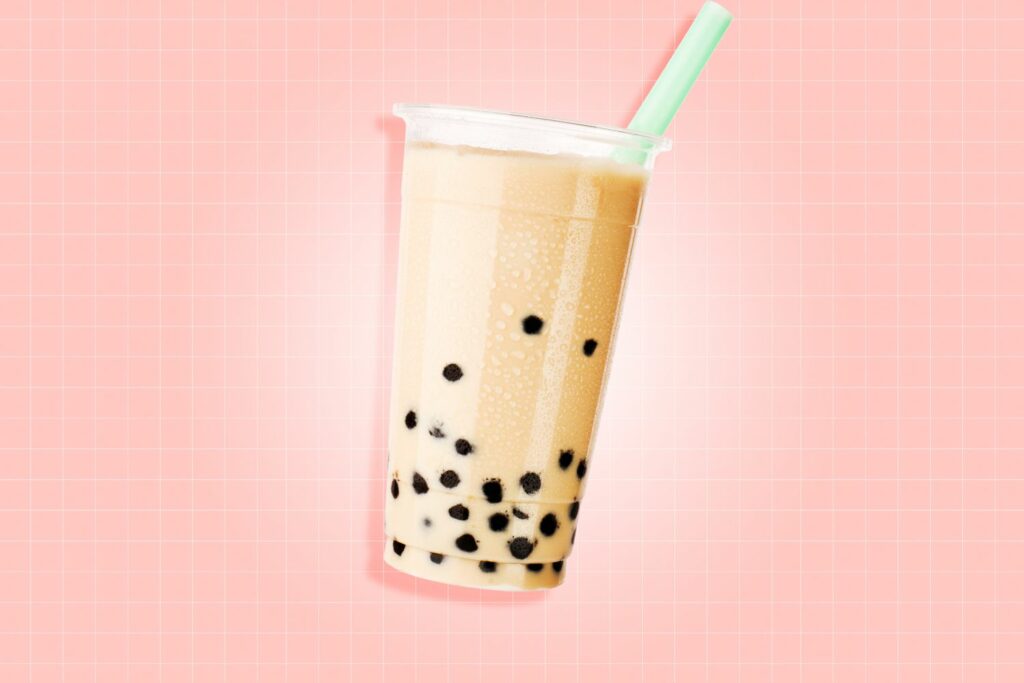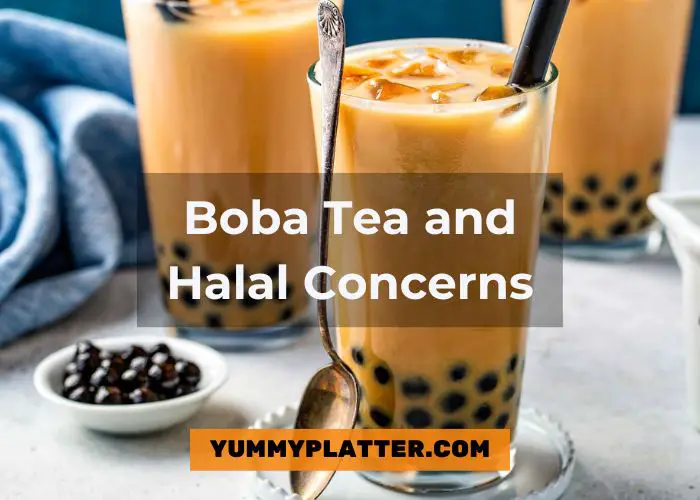Ever found yourself standing in front of a boba shop, staring at the menu and wondering, “Is boba halal?” You’re not alone. Boba tea, with its sweet flavors and fun tapioca pearls, has taken the world by storm. But for those of us following halal dietary laws, diving into a cup isn’t always straightforward.
Understanding whether boba is halal is crucial. It’s not just about the delicious tea or the chewy pearls; it’s about ensuring everything from the tea base to the toppings aligns with halal principles. And yes, the details matter — from the ingredients to how they’re all mixed together.
In this article, we’re going to sip our way through the facts. We’ll explore what goes into boba tea, pinpoint ingredients of interest, and give you the lowdown on how to enjoy this popular drink while sticking to halal guidelines. Ready to become a boba-halal expert? Let’s get started!
The Basics of Halal Dietary Laws
So, what’s the deal with halal? Simply put, halal means “permissible” in Arabic. It’s all about what’s okay to eat and drink according to Islamic law. Foods that don’t make the cut are called haram, or “forbidden.” This isn’t just about what we eat but also how it’s prepared.
For food to be halal, it must not contain any pork, alcohol, or anything derived from a forbidden animal that wasn’t slaughtered in the Islamic way. Also, cross-contamination with haram substances? That’s a big no-no.
Now, you might be thinking, “What does this have to do with boba tea?” Great question! When we dive into those tasty drinks, every ingredient and how it’s mixed together matters. The tea, milk, sweeteners, and even those chewy tapioca pearls need a closer look to ensure they meet halal standards.
Understanding halal is key to enjoying more than just food; it’s about respecting dietary laws while indulging in our favorite treats.
What’s in Your Boba Tea? (Boba Tea and Halal Concerns)
Let’s take a closer look at boba tea. At its heart, boba is a mix of tea, milk, sweeteners, and those signature tapioca pearls. Sounds simple, right? But here’s where we need to pay attention to the halal details.
First off, the tea itself is usually fine, halal-wise. It’s just leaves and water, after all. But then we add milk. If the milk is from cows, no problem, as long as it’s handled properly.
Nowadays, though, many boba shops use creamers or milk powders. We need to check those for any non-halal ingredients.

Sweeteners are next. Sugar? Generally okay. But some syrups or artificial sweeteners might have hidden surprises. We’ve got to make sure there’s nothing haram lurking in there.
Now, the star of the show: tapioca pearls. These chewy treats are made from cassava root, so they’re plant-based and usually halal. But, some shops might add gelatin for extra chewiness, and that gelatin needs to be halal-certified.
And don’t forget about the toppings! Jellies, popping boba, and fruit pieces are popular, but we have to watch out for gelatin here, too. Plus, any flavors or colors added to the boba tea need a halal thumbs-up.
Halal Certification: Your Boba Tea Passport
Navigating the world of boba tea for halal options doesn’t have to be a puzzle. Whether you’re in the USA or the UK, getting to the bottom of halal certification is key.
Let’s start with preparation. It’s not just about what’s in your boba; it’s also how it’s made. Cross-contamination is a sneaky culprit. Even if all ingredients are halal, using the same blender that mixed a non-halal ingredient can be a no-go. So, asking about the preparation process is a smart move.
Now, onto certification. Halal certification is like a passport for your boba tea, telling you it’s safe to embark on this tasty journey. Certified places have gone through checks to make sure everything, from ingredients to prep, is halal-compliant. This is a big green light for our halal boba adventure.
In the USA and the UK, more and more boba shops are catching on to the importance of halal certification. They understand it’s not just about attracting more customers; it’s about respecting dietary practices. So, when you spot that halal certificate on the wall or menu, you know you’re in good hands. Most BOBA tea flavors are considered halal unless there are haram ingredients involved.
But what if there’s no certificate in sight? It’s okay to ask. A simple, “Hey, can you tell me more about your halal practices?” opens up the conversation. Most places are keen to share what they know. And your interest might even encourage them to consider certification.
Remember, every question you ask and every halal boba tea you enjoy sends a message. It says, “There’s a demand for halal options.”
Also Read: Are Tic Tacs Halal?
Your Guide to Enjoying Halal Boba Tea
Exploring the boba world as a Muslim consumer is easier than you think. Here’s how you can enjoy your boba tea without compromising your halal diet.
First thing first: do a little homework. Before you step into a boba shop, check out their website or social media. Many places now proudly mention their halal options online. Finding a halal boba spot from the comfort of your home? Yes, please!
Next up, become best friends with the ingredients list. When you’re at the shop, don’t be shy to ask what’s in your drink. Specifically, ask about the milk, sweeteners, and those all-important tapioca pearls. Remember, knowledge is power – especially when it comes to keeping things halal.
Keep an eye out for halal certification signs. These are your best clue that a shop takes its halal customers seriously. No sign in sight? It never hurts to ask. Your interest might even spark a change.
FAQs
Can boba tea be considered halal?
Yes, boba tea can be considered halal if it’s made with ingredients that comply with Islamic dietary laws. This includes ensuring that any milk, sweeteners, and flavorings are halal-certified and that any gelatin used (in toppings like jellies) is derived from halal sources. Always check with the vendor about their ingredients and preparation methods.
What ingredients should I look out for in halal boba tea?
When choosing halal boba tea, watch out for non-halal gelatin in jellies or other toppings, alcohol-based flavorings, and any milk or creamer products that may not be halal-certified. Opt for plant-based or halal-certified animal gelatin, and ensure that all flavorings and milk products are halal.
What do I do if a boba tea shop doesn’t have halal certification?
If a boba tea shop doesn’t have halal certification, you can ask the staff about the ingredients and preparation methods to ensure they meet halal standards. Inquire specifically about the sources of gelatin, milk, and flavorings used. If you’re unsure or not satisfied with the answers, it may be safer to choose another shop that offers clearer halal options.
Conclusion: Sipping Halal Boba with Ease
So, there you have it – cracking the code on enjoying halal boba tea isn’t as tricky as it might seem. Whether you’re in the bustling cities of the USA or exploring the charming streets of the UK, keeping your boba adventures halal is totally doable.
Remember, it all starts with being curious. Asking about ingredients and preparation methods shows you care about keeping it halal. And don’t forget, your voice matters. By asking for halal options, you’re telling boba shops there’s a demand they shouldn’t ignore.
Spotting that halal certification is like finding a treasure. It means you can dive into your boba tea without a second thought. But even without it, staying informed and making smart choices means you don’t have to miss out on this delicious treat.

